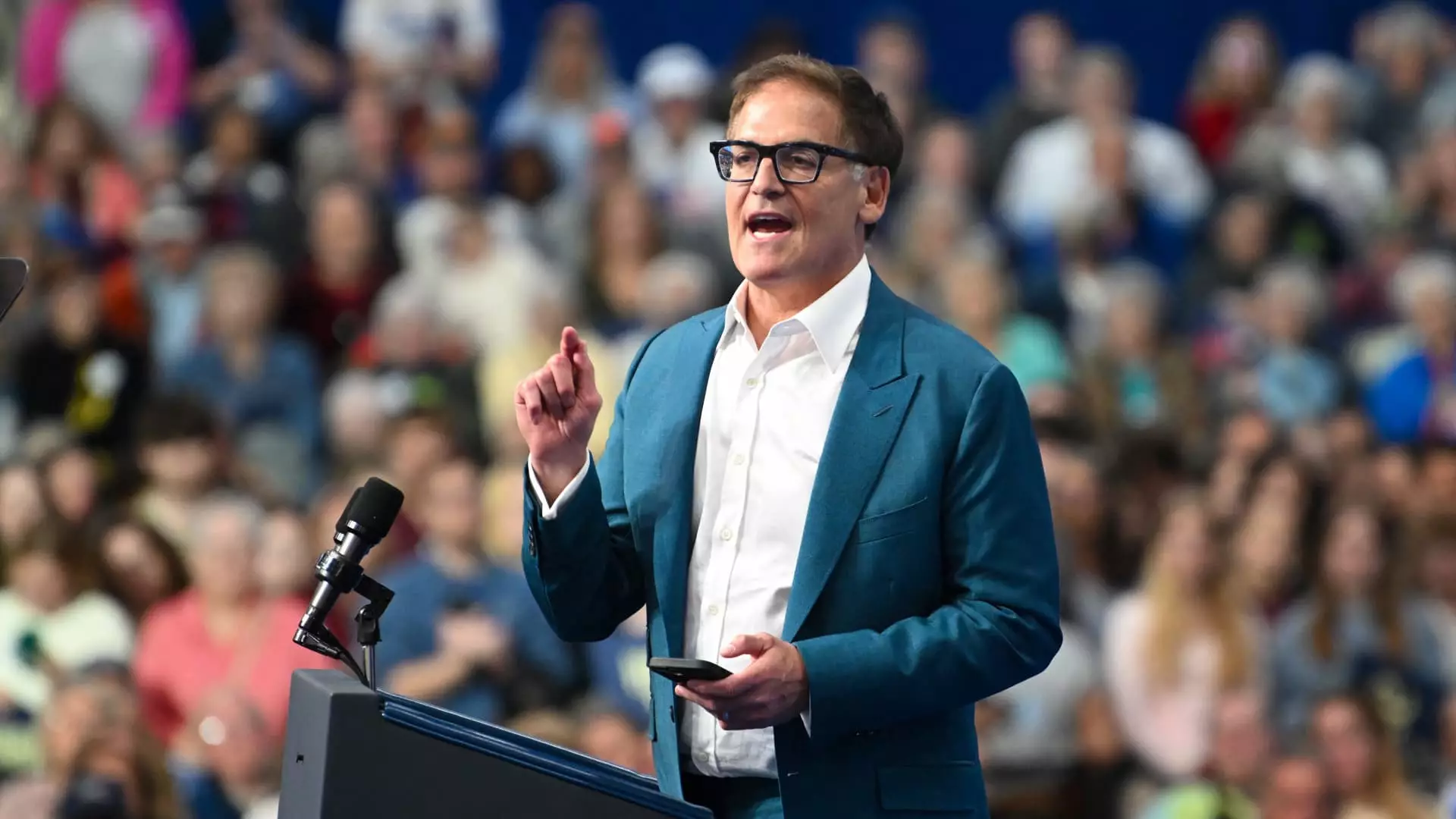In a recent interview, billionaire investor Mark Cuban made it clear that he has no desire to transition from the business world into a political role, even amidst his growing support for Vice President Kamala Harris in her campaign against former President Donald Trump. Cuban emphasized, “I have no interest in being a politician of any type. I have no interest in serving in the cabinet for Kamala Harris or anybody.” His assertion of disinterest in political roles contrasts sharply with earlier indications that he might be open to such opportunities.
Cuban’s previous comments had hinted at a potential interest in a governmental position, particularly when he talked about the possibility of taking over as Chair of the Securities and Exchange Commission (SEC) from Gary Gensler, a figure whom he has publicly criticized. His encouragement to “put my name in for the SEC” highlighted a certain level of enthusiasm for influencing public policy, albeit from a distance. The stark contrast between these statements raises questions regarding the fluidity of Cuban’s political intentions.
While Cuban fervently campaigns for Harris, his role seems more aligned with that of a commentator rather than that of a politician in waiting. As an entrepreneur at heart, Cuban appears to relish his position as a disruptor, viewing the business sector and governmental landscape through the lens of innovation and reform. He has become increasingly active on the campaign trail, lending his support to the vice president through appearances in the media and rallies. His rise as a prominent campaign surrogate for Harris suggests a deepening commitment to shaping the political narrative, albeit without the desire to occupy an official role within the administration.
Cuban’s commentary frequently highlights his aspirations for corporate regulation, voicing opinions on various figures in Harris’s potential administration. He has not hesitated to suggest that the vice president should consider replacing prominent figures such as Federal Trade Commission Chair Lina Khan, whom he believes has faltered in her consumer protection efforts. Cuban’s viewpoint that Khan’s antitrust strategy, particularly regarding Big Tech, may be counterproductive indicates his willingness to engage with policy matters without pursuing the intricacies of political power himself.
Ultimately, Mark Cuban occupies a unique space in the political discourse surrounding the upcoming presidential election. While reaffirming his disinterest in a cabinet position, he champions initiatives that reflect his entrepreneurial background and disruptor mentality. This dynamic allows Cuban to critique existing policies and figures while continuing to influence the political landscape from a comfortable distance. His emphasis on corporate regulation and consumer protection not only underscores his business acumen but also signifies a deeper engagement with political processes as he advocates for the change he wishes to see. As the election approaches, it will be intriguing to see how transcending traditional political avenues influences both Cuban’s trajectory and Harris’s campaign narrative.


Leave a Reply